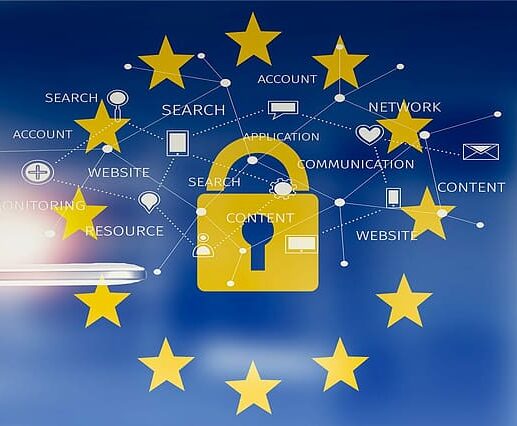Could Democrats be opening the door to European-style internet gatekeeping here in the U.S.? If so, free market advocates want to slam that door shut — and quickly.
Last month, Rep. Pramila Jayapal (D WA-7) reminded her fellow members of the House Judiciary Committee that she is the sponsor of what she calls legislation “to restore fairness and competition for consumers and small businesses. That included the American Innovation and Choice Online Act, or AICOA, which included similar common-sense structural solutions to what the EU included in the Digital Markets Act (DMA).”
That caught the attention of lawmakers who support America’s current, light-touch regulation has made it the world’s leader in tech innovation. They worry that implementing an EU-style regulation scheme in the U.S. would reduce innovation, limit revenue growth and increase legal risks for America’s world-leading tech industry.
Europe’s DMA targets designated “gatekeepers” of the digital marketplace —companies whose platforms have become essential infrastructure for modern life. Under the DMA, goverment regulators have massive power over private tech companies and their business practices.
For example, under EU regulations, companies are banned from engaging in what regulators view as “self-preferencing,” favoring their own products or services over others on their platforms.
These laws were enacted on the heels of the EU’s General Data Protection Regulation (GDPR), a measure designed to protect users’ data and provide them with transparency and control over how its use. Among its provisions was the option for website visitors to opt out of certain data-collecting/tracking cookies.
Five of the DMA’s seven designated gatekeepers are American firms: Alphabet, Apple, Amazon, Meta and Microsoft. The sixth is TikTok parent China-based ByteDance, whose popular social media app is slated to come under U.S. control. The seventh is Amsterdam-based Booking, designated as a gatekeeper for its online intermediation service Booking.com.
These laws had an immediate impact on American companies that do digital business in Europe, according to Jennifer Huddleston, who follows internet regulation at the libertarian Cato Institute.
“It cost American companies millions of dollars [to comply with the GDPR],” says Huddleston. “And while the companies’ engineers were working on those issues, they weren’t innovating.”
Some American firms, she notes, simply opted out of the European market rather than take on the cost and regulatory risk of complying with the GDPR. The Los Angeles Times and The Chicago Tribune, for example, are not generally available online in the EU.
The Trump administration has made its opposition clear, releasing a directive earlier this year declaring “Regulations that dictate how American companies interact with consumers in the European Union, like the Digital Markets Act and the Digital Services Act, will face scrutiny from the Administration.”
But some members of Congress, like Jayapal, want to follow in the EU’s footsteps. The AICOA would prohibit large platforms (those with over 50 million monthly users) from favoring their own products or services over others in a way critics say harms competition. For example, it would bar platforms from using default settings to steer users towards their own products, restricting the uninstallation of preinstalled software, and conditioning access or placement on the platform on the purchase of other products.
Cato’s Huddleston says such legislation is at odds with America’s traditional approach to regulation, which is to allow maximum freedom and strive for tailored solutions to specific problems that emerge. That approach, she says, “recognizes that there are benefits we can’t foresee” when companies are given the latitude to innovate.
Congress has also seen legislation that would require platforms to disclose their content moderation policies and allow users to appeal takedowns—an echo of the DSA’s procedural fairness rules—and enable users to take their data with them when switching from one platform to another, much like the EU requires.
Another Democratic initiative, the Kids Online Safety Act (KOSA), aims to protect children by blocking their access to potentially harmful content, prohibiting “addictive’ algorithms, and limiting who can communicate with kids online.
These measures have been criticized for various alleged shortcomings, including the potential to infringe on free speech, degrade user experiences, and hinder innovation by imposing additional costs on smaller companies. KOSA has proven particularly controversial for its potential to limit access to information deemed “harmful” by regulators.
“We continue to see members of Congress, on a bipartisan basis, express support for legislation that would give the federal government more power to control and suppress speech online under the guise of protecting kids,” said Maddie Daly, Assistant Director of Federal Affairs at the Electronic Frontier Foundation. “Suppressing legal speech online will not make kids safer.”
So, what’s next?
For the moment, efforts to enact EU-style regulation in the U.S. have stalled. Most of the EU-mirroring legislation was proposed during the Biden administration, and the Trump administration isn’t interested in advancing it.
Even if Democrats were to somehow win back the House and Senate in 2026, their internet regulation agenda would still face opposition from the Trump administration, the tech industry, and even lawmakers from across the political spectrum who are increasingly concerned about limits on free speech.
For the moment, U.S. free markets are beating EU regulations on Capitol Hill.


